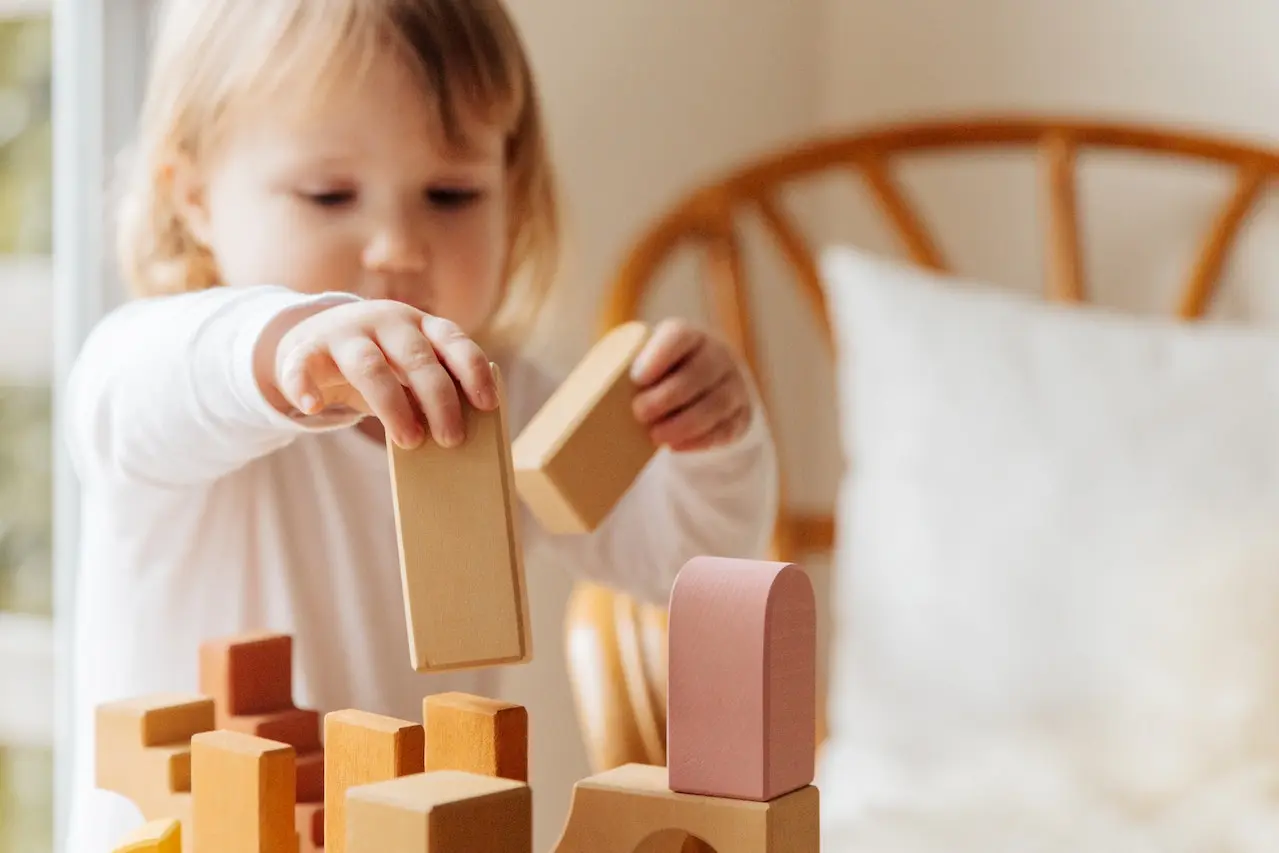Self-control is a vital skill that can significantly impact a child’s development and future success. It helps children manage their emotions, resist impulses, and make responsible decisions. As parents, it’s our responsibility to guide our children in developing this crucial skill. In this blog, we’ll explore ten practical Self control tips for teaching your child self-control, with real-life examples to illustrate each point.
What is Self-control?
Self-control is a fundamental cognitive skill that involves managing one’s thoughts, emotions, impulses, and behaviors, especially in challenging or tempting situations. It encompasses the ability to resist immediate gratification, make reasoned decisions, and act in accordance with long-term goals and values. Essentially, self-control allows individuals to regulate their reactions and actions, even when faced with powerful urges or emotions.
The Importance of Self-control

Self-control is not just a desirable trait; it’s an essential life skill for children that has far-reaching implications for their development and future success.
Why is Self-control Essential in a Child’s Life?
Emotional Regulation: Self-control empowers children to manage their emotions effectively. It helps them avoid impulsive outbursts, reducing instances of anger, frustration, and emotional distress. This emotional regulation contributes to better mental health and a higher level of emotional intelligence.
Academic Success: In an educational context, self-control is a critical factor in academic achievement. It enables children to stay focused on tasks, resist distractions, and complete assignments on time. The ability to delay immediate gratification (like watching TV) in favor of studying or doing homework leads to improved academic performance.
Positive Relationships: Self-control plays a pivotal role in building and maintaining healthy relationships. Children with self-control are better equipped to empathize with others, listen actively, and communicate effectively. They can resolve conflicts more peacefully and build stronger, more meaningful connections with their peers and adults.
Responsible Decision-Making: Self-control fosters responsible decision-making. Children who can delay gratification are more likely to make choices that align with their long-term goals. They are less susceptible to impulsive decisions that may have negative consequences, such as excessive spending, substance abuse, or risky behaviors.
How Self-control Influences Various Aspects of a Child’s Development and Future Success
Emotional Well-being: Self-control helps children manage stress, anxiety, and other emotional challenges. It contributes to a more stable and positive emotional state, which is essential for overall well-being.
Academic Achievement: The ability to concentrate, stay organized, and resist procrastination is directly tied to self-control. These qualities are essential for academic success, as they enable students to excel in their studies.
Social Competence: Self-control enhances a child’s social competence by promoting empathy, active listening, and effective communication. These skills are vital for building and maintaining healthy relationships throughout life.
Career Success: Self-control continues to be a valuable asset in adulthood. It enables individuals to persevere through challenges, make strategic career decisions, and exhibit professionalism in the workplace.
Health and Wellness: Self-control is associated with making healthier lifestyle choices, such as maintaining a balanced diet, exercising regularly, and avoiding harmful habits. These choices contribute to better physical health and overall well-being.
10 Tips for Teaching Self-control to Children
1. Be a Role Model
Children learn by observing their parents, so it’s essential to demonstrate self-control in your own life. Whether it’s managing your temper, resisting the urge to overspend, or making healthy choices, your actions serve as a powerful example.
Example: When faced with a frustrating situation, like heavy traffic, remain calm and composed instead of reacting with road rage. Your child will notice your self-control and learn to manage their own frustration.
2. Encourage Emotional Awareness
Help your child identify and label their emotions. When they understand their feelings, they can better control their reactions. Create a safe space for them to express their emotions without judgment.
Example: If your child is upset because they didn’t win a game, ask them how they feel and why. Discuss the disappointment and explore ways to cope positively.
3. Teach Delayed Gratification
Delayed gratification is the ability to resist immediate rewards for more significant benefits in the future. Introduce activities that require patience and perseverance, like puzzles or building projects.
Example: If your child receives an allowance, encourage them to save a portion of it to buy a more substantial item they desire rather than spending it all at once.
4. Set Clear Expectations
Establish clear rules and expectations for behavior. When children know what’s expected of them, they can better control their impulses and actions.
Example: Before visiting a relative’s house, explain the expected behavior, such as using polite language and refraining from interrupting conversations.
5. Practice Mindfulness and Deep Breathing
Teach your child mindfulness techniques and deep breathing exercises to help them stay calm in challenging situations. These techniques can be invaluable in managing strong emotions.
Example: When your child gets upset or frustrated, guide them through deep breathing exercises. Inhale slowly through the nose for a count of four, hold for four, and then exhale for four.
6. Use Positive Reinforcement
Praise your child when they exhibit self-control. Positive reinforcement can motivate them to continue making responsible choices.
Example: If your child finishes their homework before watching TV, acknowledge their effort by saying, “I’m proud of how responsible you are with your schoolwork.”
7. Set Realistic Goals
Help your child set achievable goals and celebrate their accomplishments. This fosters a sense of self-control and accomplishment.
Example: If your child is trying to improve their grades, set specific, attainable targets for each subject and celebrate when they meet them.
8. Encourage Problem-solving
Teach your child how to solve problems and make decisions logically. Encourage them to think through options and consider consequences.
Example: If your child faces a disagreement with a friend, ask them to brainstorm potential solutions together, such as talking it out or finding a compromise.
9. Limit Screen Time
Excessive screen time can hinder self-control by providing instant gratification. Set reasonable limits on screen time and encourage other activities that require patience and effort.
Example: Designate specific hours for screen time and encourage your child to spend the rest of their free time reading, playing outdoors, or pursuing hobbies.
10. Be Patient and Supportive
Self-control is a skill that takes time to develop. Be patient with your child as they learn and make mistakes. Offer support, guidance, and encouragement along the way.
Example: If your child struggles to control their temper, reassure them that it’s okay to make mistakes and that you’re there to help them improve.
The Long-term Benefits of Self-control
Emotional Resilience: Developing self-control in childhood leads to improved emotional regulation, which remains a valuable asset throughout adulthood. It enables individuals to manage stress, anxiety, and emotional challenges effectively, contributing to better mental health.
Academic and Career Success: Self-control continues to play a pivotal role in academic and career achievements in adulthood. It empowers individuals to stay focused, set and attain long-term goals, and make responsible decisions, resulting in higher educational attainment and career advancement.
Stronger Relationships: Self-control underpins healthy relationships. Adults who possess this skill are more adept at empathizing, communicating effectively, and resolving conflicts peacefully, fostering deeper and enduring connections with others.
Financial Responsibility: Self-control plays a vital role in financial stability. Adults with self-control are less likely to accumulate debt, overspend, or make impulsive financial decisions. They excel at budgeting, saving, and investing, leading to financial security.
Personal Fulfillment: Ultimately, self-control contributes to personal fulfillment and a sense of accomplishment. Adults who can achieve their long-term goals, manage their emotions effectively, and maintain positive relationships tend to experience greater life satisfaction and happiness. Additionally, they are more likely to pass on these valuable skills to future generations, creating a positive cycle of self-improvement and resilience.
Bonus Tip: Enhancing Self-control Development with Joonify
In the journey of fostering self-control in children, Joonify stands as an invaluable ally. Joonify is India’s leading talent assessment platform for children, offering a holistic approach to nurturing their potential. With Joonify’s comprehensive assessments, you gain valuable insights into your child’s cognitive development, emotional strengths, and areas for improvement across eight vital learning dimensions.
Joonify is a cutting-edge platform that aligns seamlessly with the goal of nurturing self-control skills. Through its comprehensive assessments, Joonify provides insights into a child’s cognitive development and emotional strengths. By understanding their cognitive profile, parents and educators can tailor their guidance and support more effectively.
Furthermore, Joonify offers personalized recommendations based on the assessment results, providing a roadmap for honing self-control skills tailored to the child’s unique strengths and areas for improvement. By integrating Joonify’s expertise and resources into the process of teaching self-control, parents can equip their children with a valuable life skill that will serve them well throughout their lives. With Joonify, the journey of self-control development becomes even more targeted, effective, and rewarding for both parents and children.
Conclusion
Teaching your child self-control is a lifelong journey that requires dedication and consistency. By being a positive role model, fostering emotional awareness, and practicing delayed gratification, you can lay the foundation for their self-control skills. Clear expectations, mindfulness techniques, and positive reinforcement will further aid their development.
Remember that self-control is not about suppressing emotions but about managing them in healthy ways. Encourage problem-solving, limit screen time, and be patient and supportive as your child learns and grows. By instilling self-control in your child, you equip them with a valuable life skill that will serve them well throughout their lives, enabling them to make responsible decisions and navigate challenges with confidence.
 0
0
 Share
Share


















Comments
No comments found.